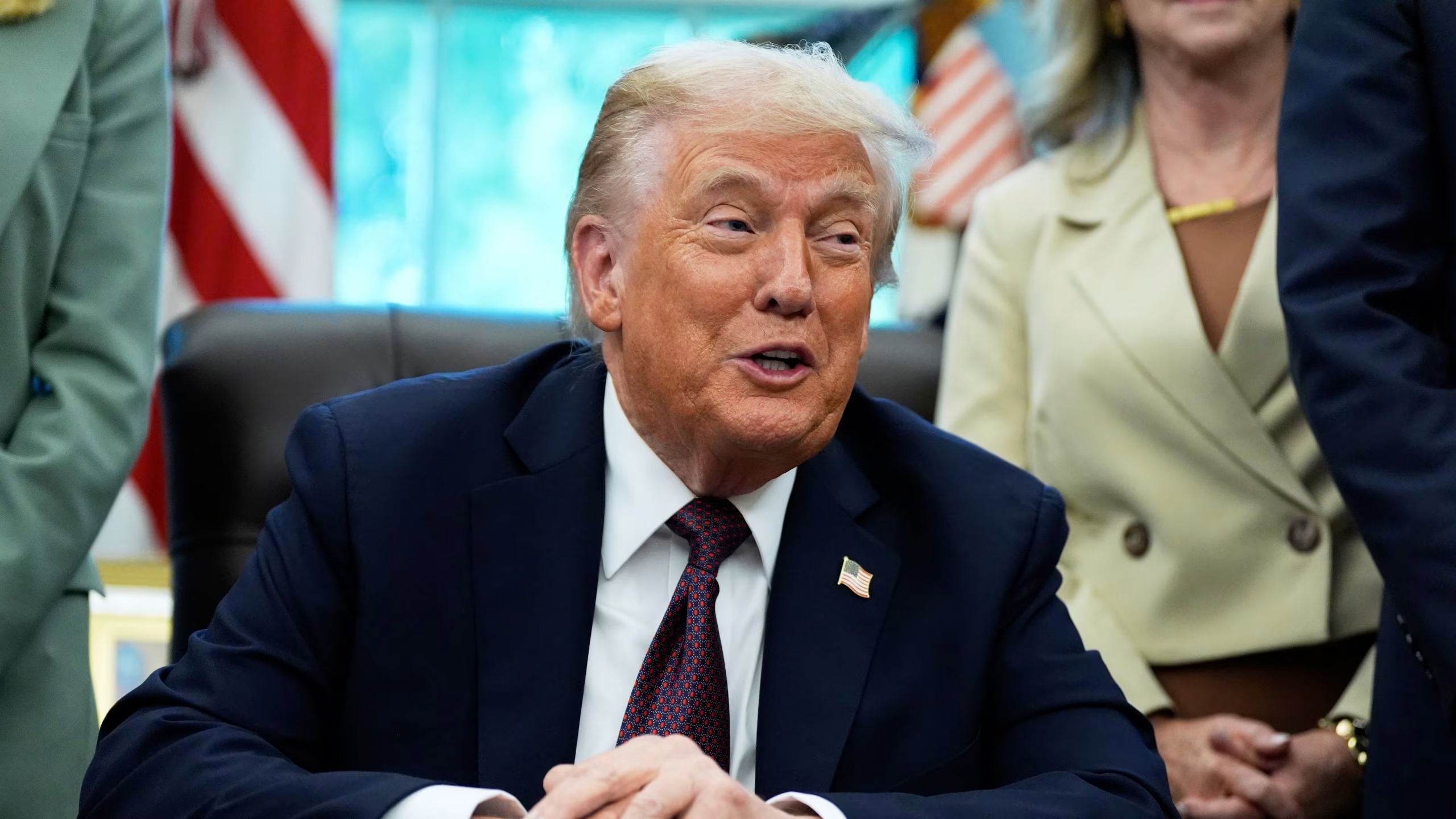The political and media landscape in the United States has long been shaped by battles between powerful figures and influential institutions. Few rivalries illustrate this dynamic more dramatically than the ongoing clash between former President Donald Trump and The New York Times. Trump’s announcement of a $15 billion lawsuit against the newspaper has reignited debates about press freedom, political bias, and the future of journalism in America. The case, which Trump describes as a fight for truth and fairness, is one of the largest defamation claims ever brought against a media outlet. Supporters view it as a bold stand against what they perceive as media overreach, while critics argue it is another attempt to stifle free press and distract from his political controversies. This development not only carries profound legal implications but also raises essential questions about the balance between accountability, transparency, and constitutional protections under the First Amendment.
- Trump’s History with The New York Times
- The Basis of the $15 Billion Lawsuit
- Legal Precedent and the First Amendment
- Political Ramifications
- The New York Times’ Response
- Expert Opinions and Analysis
- The Role of Public Perception
- Historical Parallels
- Potential Outcomes
- FAQs
- Why is Trump suing The New York Times for $15 billion?
- What is the likelihood of Trump winning the lawsuit?
- How has The New York Times responded to the lawsuit?
- Could this lawsuit impact press freedom in the United States?
- Is this lawsuit politically motivated?
- Conclusion
Trump’s History with The New York Times
Donald Trump’s fraught relationship with The New York Times stretches back decades. As a celebrity businessman in New York during the 1980s and 1990s, Trump often courted media attention, with the Times frequently covering his real estate ventures, public feuds, and flamboyant lifestyle. But when Trump entered politics and launched his presidential campaign in 2015, the tone of coverage shifted. The Times became one of his most outspoken critics, publishing investigative reports about his business practices, tax returns, and administration policies.
Throughout his presidency, Trump frequently referred to the Times as “failing” and accused its reporters of being “enemies of the people.” His disdain culminated in numerous disputes, including public condemnations, social media attacks, and previous legal threats. The current lawsuit, however, is unprecedented in scope and signals that Trump is escalating his long-running feud with the publication.
The Basis of the $15 Billion Lawsuit
Trump’s legal team alleges that The New York Times engaged in a systematic campaign to damage his reputation through what they describe as “false, malicious, and defamatory reporting.” According to filings, the lawsuit centers on a series of investigative pieces published by the Times, which Trump claims intentionally misrepresented his business dealings, political motives, and personal conduct.
The former president argues that the damages caused by these articles go beyond his personal image, extending to lost business opportunities, political influence, and public credibility. His lawyers contend that the Times crossed ethical and legal boundaries by publishing what they characterize as “unverified allegations” and “politically motivated falsehoods.” By demanding $15 billion in damages, Trump’s team is signaling that they view this case as not just about reputation but about punishing what they see as journalistic malpractice.
Legal Precedent and the First Amendment
One of the most significant aspects of this lawsuit is its relationship to the First Amendment, which protects freedom of speech and freedom of the press. Historically, U.S. courts have upheld a high bar for public figures like Trump to prove defamation. The landmark 1964 Supreme Court case New York Times Co. v. Sullivan established the “actual malice” standard, requiring plaintiffs to show that false statements were published knowingly or with reckless disregard for the truth.
Legal scholars argue that this case could test the boundaries of that precedent. Critics suggest Trump’s lawsuit may struggle in court, as proving “actual malice” against a major news outlet is notoriously difficult. Yet, Trump’s allies insist the lawsuit is a necessary challenge to what they perceive as media bias and abuse of power. If the case proceeds, it could have profound consequences for press freedom and the responsibilities of journalists covering public figures.
Political Ramifications
The lawsuit also carries undeniable political implications. Trump remains a dominant figure within the Republican Party and is widely expected to seek another presidential term. By launching this legal battle against one of his most prominent critics, he positions himself once again as a fighter against the so-called “mainstream media establishment.”
Supporters believe this move will galvanize his base, which has long shared his skepticism toward the press. For them, the lawsuit is not just about Trump but about holding powerful media institutions accountable for perceived bias. Critics, however, argue that the timing of the lawsuit is strategic, designed to dominate headlines, distract from ongoing investigations into his business and political dealings, and rally support ahead of the next election cycle.
The New York Times’ Response
In response to Trump’s announcement, The New York Times has defended its reporting as accurate, fact-based, and protected under the First Amendment. Editors at the paper argue that investigative journalism plays a crucial role in a functioning democracy, especially when it involves powerful public officials.
The Times has pledged to “vigorously defend” itself in court, framing the lawsuit as an attack not only on their institution but on press freedom more broadly. In statements, the publication emphasized its commitment to investigative reporting and its responsibility to hold leaders accountable. Legal analysts predict that the Times will likely move to dismiss the lawsuit, citing strong constitutional protections afforded to journalists.
Expert Opinions and Analysis
Experts across law, politics, and media have weighed in on the potential impact of this lawsuit. Constitutional scholars highlight that Trump faces an uphill battle due to the difficulty of proving defamation under the “actual malice” standard. Media analysts argue that even if Trump does not win in court, the lawsuit may achieve a different objective: intimidating news outlets and shifting public perception of the media’s credibility.
A professor of media law at Columbia University recently noted, “This case is less about winning damages and more about creating a chilling effect on investigative journalism. When public figures sue for astronomical sums, the goal is often to discourage further scrutiny.”
At the same time, political strategists see the lawsuit as an effective rallying tool for Trump’s supporters. It allows him to frame himself as a victim of unfair coverage while portraying the Times as a symbol of elite institutions working against ordinary Americans. This narrative has historically proven effective in energizing his voter base.
The Role of Public Perception
Public perception is perhaps as important as the legal outcome. For many Americans, this lawsuit confirms pre-existing beliefs about the media or about Trump himself. Those who distrust mainstream journalism see it as evidence that Trump is taking on corrupt institutions. Conversely, those who value independent media view the lawsuit as an authoritarian attempt to silence critical voices.
Polling data in recent years shows declining trust in media among Republicans, with surveys indicating that only around 10% of conservative voters trust mainstream outlets like The New York Times. This lawsuit may deepen that divide, further polarizing how Americans perceive news coverage.
Historical Parallels
This is not the first time a political leader has challenged major media organizations through legal means. Richard Nixon and his administration clashed with The Washington Post during the Watergate scandal, while more recently, Sarah Palin sued The New York Times over an editorial she claimed defamed her. Palin ultimately lost her case, underscoring the difficulty public figures face in defamation lawsuits.
Trump’s lawsuit, however, stands out because of its unprecedented $15 billion demand and its timing amid ongoing political campaigns. If it proceeds, it could set new precedents and influence how media organizations approach investigative reporting about powerful figures.
Potential Outcomes
Several potential outcomes exist for this case. The lawsuit could be dismissed at an early stage, as many experts predict, if courts determine that Trump’s claims do not meet the legal threshold for defamation. Alternatively, if the case moves forward, it could result in a protracted legal battle that dominates headlines for months or even years.
Even if Trump ultimately loses in court, the lawsuit may succeed in shaping political narratives and energizing his supporters. If, however, he were to win or secure a settlement, it could embolden other public figures to pursue similar legal strategies against the press, potentially reshaping the media landscape.
FAQs
Why is Trump suing The New York Times for $15 billion?
Trump alleges that The New York Times published false and defamatory articles that harmed his reputation, business opportunities, and political influence. His legal team claims the damages amount to $15 billion.
What is the likelihood of Trump winning the lawsuit?
Legal experts suggest Trump faces significant challenges due to the high legal standard required to prove defamation of a public figure. He must show that the Times acted with “actual malice,” meaning knowingly publishing false information or recklessly disregarding the truth.
How has The New York Times responded to the lawsuit?
The New York Times has defended its reporting as accurate and protected under the First Amendment. The paper has vowed to vigorously fight the lawsuit and maintain its commitment to investigative journalism.
Could this lawsuit impact press freedom in the United States?
Yes. Even if Trump does not win, the lawsuit could have a chilling effect on investigative journalism. If successful, it could encourage other public figures to sue media outlets, potentially limiting critical reporting.
Is this lawsuit politically motivated?
Many analysts believe the lawsuit is strategically timed to rally Trump’s political base and dominate media coverage. Critics argue that it is more about shaping public perception than securing a legal victory.
Conclusion
Trump’s $15 billion lawsuit against The New York Times is more than a legal dispute; it is a battle over truth, accountability, and the role of journalism in a democracy. While the courts will ultimately determine the legal merits, the political and cultural consequences are already unfolding. For Trump, the case reinforces his long-standing narrative of being targeted by biased media. For the Times, it represents a defining test of journalistic integrity and constitutional protections. For the American public, it is a reminder of the deep divisions over trust, truth, and power in modern society. Whether this case ends quickly or drags on for years, it will leave an indelible mark on the relationship between politics and the press.





